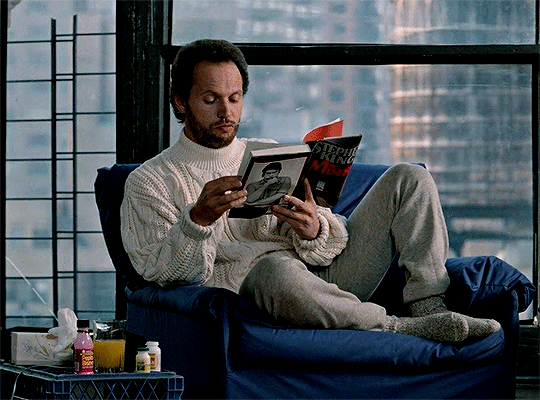One Day, Everyone Will Have Always Been Against This
Omar El Akkad's book, resistance, and an anniversary.
It’s already been a few weeks since I posted a note on this site about Portland writer, former journalist, and Egyptian-Canadian immigrant, Omar El Akkad’s new book, One Day Everyone Will Have Always Been Against This. I finished the book and messaged Omar to say his book slayed me in all the best ways, which I will explain in a minute.
But first. Several years ago, I read with Omar (thus why I’m using the familiarity of his first name) at the once-fabulous Mother Foucault's Bookshop, which used to be on Morrison Street, then supposedly moved nearby to Grand Avenue, but now seems to be closed? (Someone please correct me if I’m wrong.) The reading was part of a friend’s Loggernaut Reading Series—also fabulous and a mainstay of the Portland literary scene for a long time. I had to look up the year on the internet (2017!) because I can’t believe how time passes so fast now that I’m past fifty. (Check out that week’s Portland literary calendar; amazing writers!, powerful literary lineups!, and stranger-than-fiction prescience about these fascist times!)
In 2017, Omar was touring with his first very successful novel, American War, which I read, appreciated, and didn’t like because of its vivid prescience about the end of oil, civil war, and graphic violence. After the main character (spoiler ahead) had to slit a man’s throat to survive, I stopped reading for a long time, then pulled a Harry-met-Sally flip to the back of the book to see how it ends. Still, when Omar read that night at Mother Foucault’s, I could feel in his lived experience as a refugee, his pain and grief.
One Day, Everyone Will Have Always Been Against This slayed me differently than American War precisely because it is non-fiction. In American War, a fiction set in the future, it was easier to say, “okay, yes, all of this violence is plausible, but it probably won’t happen and, anyhow, I choose to not have it live in my imagination.” What a privilege it is to stop reading, to look away.
But with One Day, what Omar writes about is real right now—the genocide in Gaza and how such a thing can be happening in real time, every day, before our very eyes, for the last year and a half. I find it implausible to look away. Over 50,000 people, 70% of whom are women and children, are dead. Countless more injured, maimed, and traumatized. Each chapter in this book opens with brief descriptions of real scenes—for example, “a boy holding his father’s shoe, screaming” (pg. 47)—and goes on to discuss the cognitive dissonance and hypocrisy that perpetuates such ongoing tragedies.
I’m not here to review the book for you, there are many good reviews, this one from the Chicago Review of Books was one I liked, and Omar mixes personal story of his upbringing, family, and work as a journalist to show his own journey in where we are now. His voice seethes and is full of sorrow. He is a very smart thinker. What Kirkus says about the book is mostly correct; “a philosophically rich critique of state violence and mass apathy.” The latter part of that sentence and, in particular, the word “apathy” is my focus today.
Because I—and I suspect you, dear reader—am not apathetic. I’m exhausted. I’m overwhelmed. And yes sometimes I’m numb. As my mother has said to me more than once, “Your empathy is going to kill you.” She’s probably correct, but I’d rather die having empathy than being apathetic. The deluge of images from Gaza on my social media feeds are enough to have me in the fetal position, but the added deluge of Executive Orders that unilaterally hurt Black, brown, LGBTQIA+, poor, immigrant, working class, and frankly, middle-class people; the dives of the stock market and plausibility (probability?) of insider trading keeping the rich filthy richer; the increasing climate disasters like wildfires in winter and tornadoes in spring causing more instability; and the rumors (plausibility) of marshall law—well, I suspect whether or not you’re not directly experiencing even a modicum of these deluges, you feel them all, too.
To metabolize so much suffering feels practically impossible, and yet, we must. Because if apathy is born from overwhelm, and numbness is the true root of evil, those outcomes are also the intent of the deluges: to keep you quiet and/or turning on each other. So our job is to metabolize, feel, move through, take care, and keep going.
I know many of you went to protests last week, and you’ll probably go to more. What’s great about Omar’s book is his acknowledgement—written before the election of this 47th administration—that resistance to imperialism has always happened. One Day categorizes resistance in two ways: “active” resistance and negative resistance. Active resistance is what I have elsewhere named direct democracy, the kind of thing for which I currently volunteer a lot of time in my community. In fact, I may make this sign for the next protest:
“I’ll see all you nice white people at the next court and police union hearing, school board, city council, and county commissioner meeting, congressional town hall, PTA function, clothing drive, seed swap, bake and rummage sale, food pantry, and poetry reading, right?”
Haha, right? We can’t all do all of those actions, of course, but we can and at this point of fending of fascism, really must do frequent (daily? weekly?) public action.
Negative resistance is what Omar defines as “refusing to participate when the act of participation falls below one’s moral threshold” (pg. 166). Omar’s chapter on negative resistance is called “Leavetaking,” made me think of something we say in recovery; “hitting bottom is when the consequences of your actions happen faster than you can lower your standards.” Seeing a child shot in the street and trapped under rubble was long ago my bottom, the moral threshold I cannot abide.
My negative resistance is refusing to participate as much as possible in the global machine that is consumerism, a system that increasingly bequeaths exorbitant profits on less and less people. This resistance looks like buying and/or growing and harvesting my own food, supporting and trading with local farmers, shopping at thrift stores as much as possible. When I do participate in the machine—buying gas, a coffee from $tarbuck$, a post on a Meta platform because I want my words out there, I feel guilty and a little sick. Plus, negative resistance can get you in trouble; I actually didn’t know until I read Omar’s book that “more than [38] U.S. states have passed laws either restricting the ability to boycott goods related to Israel or making it illegal for companies and individuals who do to work for or with the state” (pg. 159). I’d never known about Anti-BDS (Boycott, Divestment, and Sanctions) laws at all. I was still living back in 90s when we boycotted grapes to support farm workers and felt we were doing something. As a recovering person, I have been saying for some time I’m in recovery not simply from alcohol but from the white supremacist, capitalistic, and imperialistic culture that makes us think we must buy more to be whole, and yet, I still have so much to learn, witness, and metabolize.
On the same day I cried when I saw the deer in the forest, I wrote a poem about living in a culture that funds genocide.
Honestly, I’m full of grief, full of watching a man burn. To see his burning body, as if lounging in a chair, his reflex Kicks in and his leg jerks, his hands rise up perhaps a prayer Probably another involuntary movement, like our heartbeats, Remember those? A dog the next day carries a wrist and hand, Charred. This language is not beautiful like a poem should be. The dog is starving, the burning man is likely dead, the earth Is dust, our souls are dust, my soul is dark, a mass inside My liver, also dying, on fire with anger and more grief and Forever burning because the anger cannot be extinguished Because the greed cannot be extinguished, because we Can look collectively at a human being burning and we do not Burn or change and all of this suffering and pain occurs Because we consume, we consume, we consume.
I write poems to fend of mass apathy. You read poems and maybe write them too for the same reasons. Omar writes beautiful things in his book about those of us who write and wonder what is the point? I’ll be talking about that section of One Day in my next Poetry for the People post. The point is to help each other collectively metabolize the grief, in order to keep moving, keep resisting.
One Day Everyone Will Have Always Been Against This implicates the thought that we in the Western world will “never have to live in fear of an occupying force obliterating your family with missiles…” (pg 91). As a double Pisces whose empathy might kill her and who feels the sorrows of the world, I’ve lived in that fear ever since I saw the photo taken by Nick Ut of the naked, running girl during the Vietnam War. That awareness was probably around the same time I asked my mom what the “No Nukes” sign meant. I felt in my little body the terror of war and imagined the possibility it could happen to me, even as I was living my best life in the leafy Chicago suburbs.
Last weekend, in my monthly online embodiment practice session, my partner asked me about my “why.” Basically, why do I do the resistance work I do and have done actively since I was 22? I took a deep breath, placed my palm over my heart and heard my soma answer: for the children. When it comes to kids’ futures, I am not apathetic. I am an enraged mother, an concerned careworker, a raging auntie, a committed activist. I’ve shown up many times with family members whose loved one have been shot down in the streets right here in the United States. I don’t just imagine occupying forces; I know it is us. The reason I had trouble with Omar’s first book is because the story felt entirely like non-fiction, and I see the horrors from that story coming true more and more. Dystopia is not the future I want for my child or any child, even as some survive it now across the world. I work for a different future.
We may have relative safety in American right now, and perhaps it’s true that we will always have that relative safety, but as Omar writes, “No, there is no terrible thing coming for you in some distant future, but know that a terrible thing is happening to you now. You are being asked to kill off a part of you that would otherwise scream in opposition to injustice. You are being asked to dismantle the machinery of a functioning conscience.”
Keep your conscience greased, keep your heart open, scream out the truth of all the injustices going down now and for years to come.
Speaking of years, it’s been one year since I started monetizing the Poetry for the People section of The Nano. I stopped payments for the last few months due to my own inactivity and I may periodically do so again. But thank you to those who do subscribe, comment, restack, and financially support this Substack. My goal is to be in community with you and to be of service to those who read and participate. May we continue to turn toward each other.
A few recommended reads today:









Powerful essay, Nance. I will be thinking for awhile about these words you quoted:
You are being asked to kill off a part of you that would otherwise scream in opposition to injustice. You are being asked to dismantle the machinery of a functioning conscience.”
It is a hard time to be a sensitive empathetic person in a world where there are so many demands and so much pain and to be walking with determination not to abandon myself in the midst of it all☮️➕💜
Nancy, you have written so many of my thoughts in your essay. Thank you for being such a strong voice. I was at a Hands Off! Rally last week, 500 strong in Decorah, Iowa. I will have to read Omar's book.